Heat Pump vs Furnace – Which One is the Winner?
The whole heat pump versus furnace debate is widely discussed, so which is best?
There are generally two types of heating systems for those who are still learning: furnaces or heat pumps. We left out boilers as they are increasingly becoming less common in North America.
Whether you live in Arizona or the colder climates of northern Canada, knowing what type of heating system to use in your home can be challenging. At Phyxter, we are often asked about the pros and cons of these two heating systems.
The biggest factor in answering the heat pump vs. furnace question is to first ask yourself which part of the country you live in.
Heat pumps, for instance, will typically only work in places with mild winters and are designed primarily for coastal regions in the southern states. In contrast, gas furnaces can brave even the harshest winter climates.
But before we continue the heating debate in more detail, we’ll first need to take an in-depth look at each of these systems and what they are designed for.
So, in this article, we will discuss heat pumps and gas furnaces and then show you how to figure out which is best for you and your climate.
Table of Contents
⭐ Heat Pump vs Furnace – How Are They Measured?
🔥 Furnaces and Annual Fuel Utilization Efficiency (AFUE)
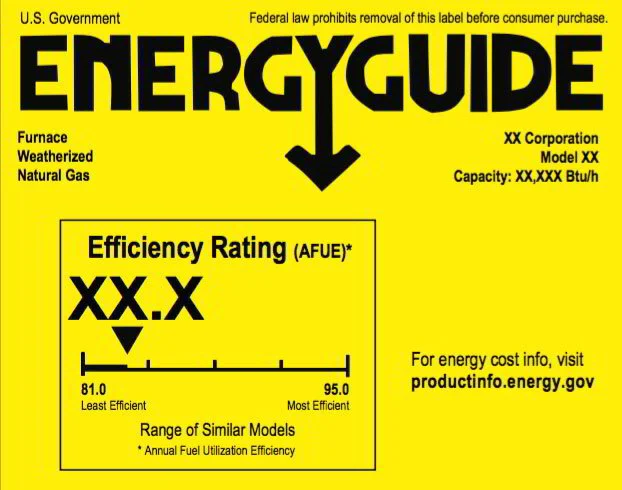
Before tackling the question, you first need to know how to compare the two.
Whether an oil furnace or a natural gas furnace, any type of heater is measured using an energy rating called Annual Fuel Utilization Efficiency (AFUE).
The AFUE is an objective way of comparing two different types of heating systems and is shown as a percentage. Therefore, it can be considered similar to a SEER rating for heaters.
For instance, an AFUE of 60% would mean that 60% of the fuel burned by this heater can be used as helpful heat to warm your home, and the other 40% is wasted energy that exits your home through the exhaust vent.
The higher the percentage of AFUE, the more energy-efficient the heat pump or furnace is.
Below is a chart that directly compares the different types of fuel.
It’s evident that some fuels are far more energy-efficient than others:
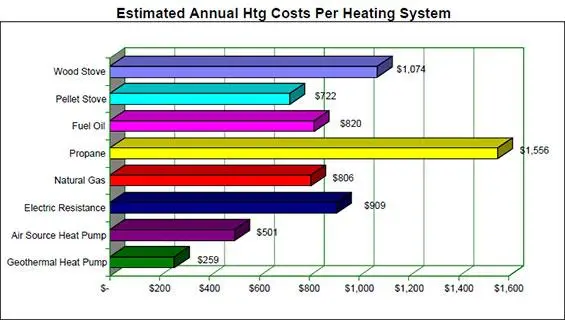
🔥 Heat Pumps and SEER
“Why are we talking about SEER values in an article about heating systems?”
Because a heat pump is basically an air conditioner that can run in reverse and can both heat and cool your home.
A heat pump is 100% electrical… so it doesn’t burn fuel as a furnace does, so it can’t be rated with AFUE!
So instead, it is measured the same way as your air conditioner – using a SEER value.
✅ SEER stands for Seasonal Energy Efficiency Ratio.
It is a means of (poorly) measuring the efficiency of your AC or furnace throughout the different seasons.
I say poorly because it is based on lab measurements in a controlled environment.
We still have not seen any of the high SEER units decrease electricity bills to the degree they claim.
SEER is ranked on a scale between 7 (anything under SEER 7 doesn’t exist anymore) and SEER 21 or 25 (or whatever the highest SEER on the market in 2022), with the higher SEER values being the most efficient.
On average, in North America, most heat pumps are 14 or 16 SEER.
The United States Department of Energy now requires that residential AC systems manufactured after 2005 have a minimum SEER rating of 13 (1).
Energy Star qualified central air conditioning units must have a SEER rating of 14.5 (2).
⭐ Heat Pump Pros and Cons
In this section of our heating debate, we will discuss some of the key features that make a heat pump advantageous over a furnace and some of the things it lacks, so let’s get started.
⭐ What Is a Heat Pump?
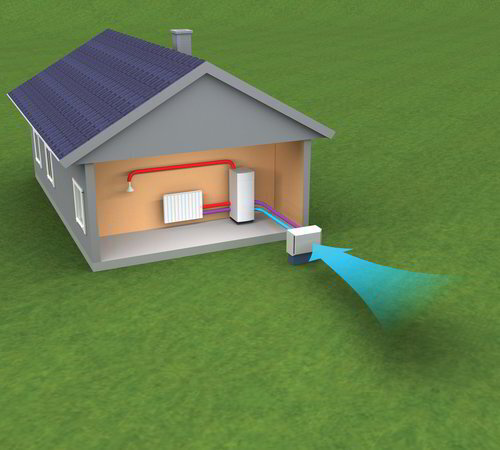
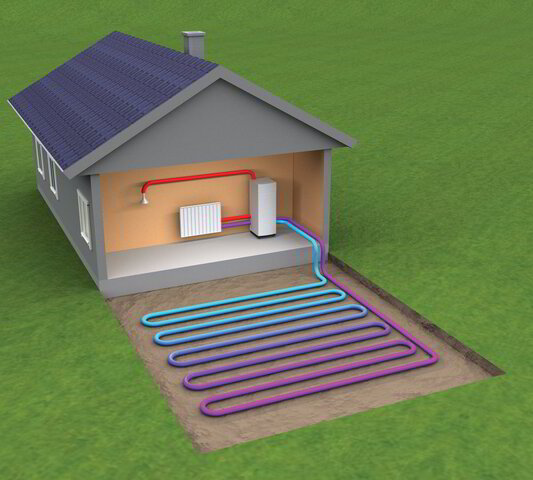
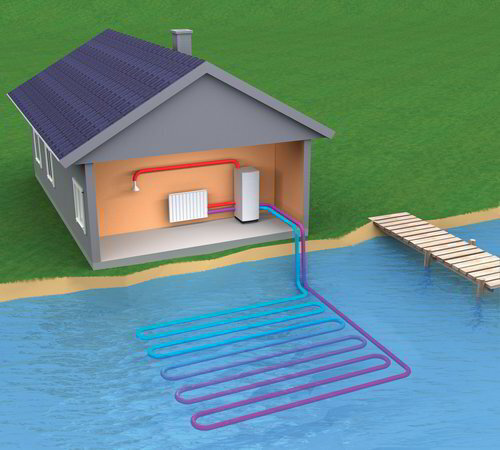
Before we start to compare a heat pump to a furnace, we have to know the difference between the two and how furnaces and heat pumps work.
A heat pump is a cooling and heating system that transfers heat from one area to another in the case of heating. It moves heat from the outside warm air and moves it inside.
When acting as an AC, it does the opposite.
The most obvious application for a heat pump is to remove heat from the warm air outside your home and transfer that captured heat into your home as heating.
A heat pump is the same thing if you are familiar with how an AC or refrigerator works. Only you can run it in reverse.
🔍 Layman’s Definition: A heat pump is an air conditioner with a reversing valve, allowing it to run in reverse, therefore, heating your house in winter instead of cooling it.
You can learn more about heat pumps right here: How Do Heat Pumps Work?
Though, the term “heat pump” can be a bit misleading. People assume that it is only a means of heating a home.
Still, the name actually refers to how it transfers heat, not the direction it directs the heat.
Are all heat pumps air conditioning systems and vice versa?
In theory, yes, but in practice, no! This is usually a matter of the manufacturer’s preference and the HVAC unit’s intended use.
All heat pumps can act as air conditioners.
Still, not all air conditioners can be considered heat pumps (even though they are from an engineering standpoint).
An AC unit is just a heat pump specialized for hot weather operation.
If your air conditioner has a reversing valve and can be used as a heater, the unit is called a “heat pump.”
🔥 Heat Pump Pros
In this competition, heat pumps have quite a few advantages.
The most notable advantage is their energy efficiency (not to be confused with their cost to operate).
Most modern heat pumps range from SEER values of around 14 up to 26.1 SEER (as of Jun 2022) (3).
A heat pump uses electricity to transfer heat from one area to another. It doesn’t actually produce heat itself.
It simply shifts the heat that already exists from one space to another, such as from the outside of your house to the inside.
A heat pump is more environmentally friendly because it doesn’t require fossil fuels to heat your home (If your electricity comes from fossil fuels, then that’s another story).
However, efficiency is a relative term. For example, although more efficient than most furnaces, heat pump systems can be more expensive to operate.
This is because your electricity is typically more expensive than the propane or natural gas used to power furnaces.
It’s also dependent on your local electricity prices. (Yes, I’m looking at you, Hawaii…)
It is essential to note that although a heat pump is more energy efficient (which means transferring more of the electrical energy used directly into usable heat), it is generally more expensive to operate than a furnace.
In short, what most of us think of as “energy efficiency” really translates into dollar signs, and heat pumps can be expensive to run.
NOTE: In most cases, an experienced HVAC Professional will opt to install a furnace over a heat pump if they have access to gas.
The exception would be when a home is located in the coastal areas of California and the Gulf states in the US.
🔥 Heat Pump Cons
So why are heat pumps not the standard for cold weather? They seem almost too good to be true! Well, there’s also a catch.
Because heat pumps transfer heat from one area to another, what do you think happens when it’s -20°F (-28.8°C) outside in the middle of a Minnesota or Northern Alberta winter?
Is there any heat to transfer into your house? That’s the catch.
A heat pump only works well if the outdoor temperature is above freezing and is almost useless in the middle of a harsh northern winter.
Ideally, a heat pump is used when the temperature outside is over 40 – 50°F (4.5 – 10°C). It is VERY inefficient below 30 – 32°F (-1 – 0°C).
Heat pumps are out if you live in the northern part of the US that have harsh winters unless you also have a supplemental means of heating your house.
In fact, heat pumps are actually designed for coastal climates in the southern states. So what do people in Montana do? They also use a furnace or a wood-burning stove!
✔️ PRO TIP: Unfortunately, people sometimes have to use a heat pump in cold weather climates like Canada. This is due to not having access to natural gas or propane to install a furnace.
However, what you can do is get an electrical heat strip added to your heat pump.
This electrical coil uses electrical resistance heating to warm up your heat pump.
When the temperature gets below freezing, this form of auxiliary heating turns on and keeps your heat pump and your home toasty!
Additionally, the average lifespan of a standard AC unit or heat pump is around 10-15 years, whereas a furnace is upwards of 20-30 years.
Although this should not be the basis for your decision, it is definitely worth considering.
This is due to the relative complexity of each type of heating system. For example, heat pumps are far more complex than modern gas furnaces.
As a result, they typically suffer more wear and tear. In addition, heat pumps run in both summer and winter, which makes this especially true. Food for thought.
⭐ What is a Furnace?
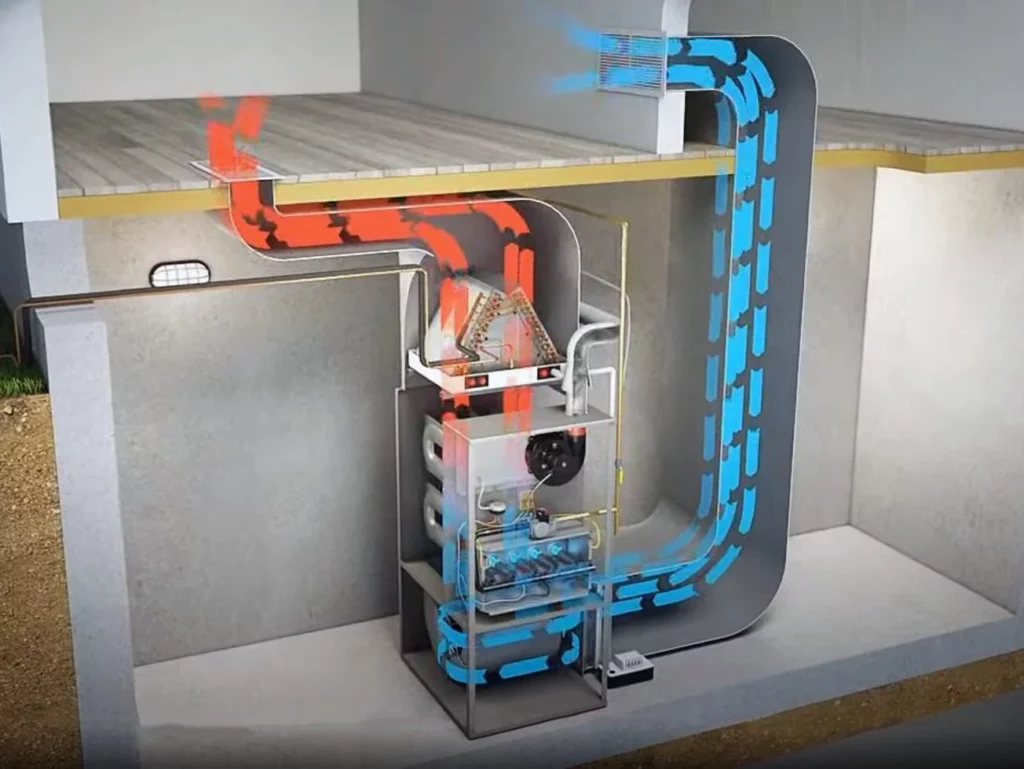
Here is where the heat pump vs. furnace discussion really becomes apparent.
A furnace uses fuel to generate heat and then circulates this heat throughout your home.
There are many types of furnaces, such as oil, gas, and electric.
All of these have pros and cons but essentially accomplish the same thing – they utilize a fuel to burn to heat the air inside your home.
Gas furnaces work by utilizing fuel-fed burners to produce heat within a combustion chamber that’s forced into a heat exchanger, where it interacts with the moving air to produce hot air that’s moved throughout your home via the ventilation system.
Electric furnaces operate in a similar manner but use electric resistance heating within the heat exchanger to produce hot air within the ventilation system.
All of these happen within the indoor air handler unit of a central air conditioning system.
🔥 Furnace Pros
The biggest pro of a furnace is it will heat your home in any weather condition, regardless of the outside temperature.
This is because furnaces create heat, whereas heat pumps take heat from outside your home and transfer (or pump) it inside.
If it is 50°F (10°C) out or -10°F (-23°C), a furnace will burn its fuel and heat your home efficiently.
This reliability is priceless if you live in colder regions like Montana or Saskatchewan.
Another pro for furnaces is the initial investment price.
When installed, a furnace is generally around $500 to $1000 cheaper than a heat pump, not including any ductwork. That’s not chump change.
🔥 Cons of a Furnace
The biggest argument against using a furnace is the cost of fuel.
Depending on the type of furnace you purchase, you can spend thousands of bucks a year fueling your furnace.
In almost every case, a gas furnace will be significantly cheaper to operate during winter than a heat pump, but does your home have access to natural gas?
We recommend that you look at the most common fuel types for your area.
For example, even though you might want to buy a natural gas furnace, natural gas might not be available in your region.
Don’t assume the fuel you want to heat your home will be your choice.
Instead, the available infrastructure in your area will dictate what heater you can use.
As you can see, propane is twice as expensive as some other fuels, so research your area.
Furnaces also have an extensive range of energy efficiency, ranging from AFUE ratings of 55% to over 95%.
This depends on what fuel and furnace you use and how much insulation you have in your home.
Deciding on what to use is as much of an art as a science, but don’t assume that whatever your neighbor uses is the best heater type for your region.
⭐ Heat Pump vs Furnace – Which Should You Choose?
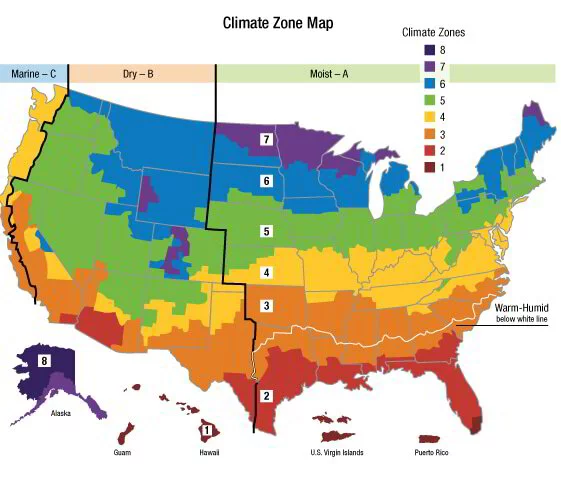
The most significant factor that should be used to examine the heat pump vs. furnace debate is the region you live in.
A furnace will be your best option if you live in BC, Canada, or any northern US state that endures harsh winters.
If you live in Southern California or some southern states that rarely dip below freezing, you should consider a heat pump system.
Heat pumps work best in zones 1 to 3 (4).
4 and above, a dual-fuel approach works best.
Here is the general rule of thumb based on the temperature range where you live:
❄️ Heat Pump
– Average Winter Temperature > 40°F (4.5°C).
❄️ Furnace
– Average Winter Temperature < 40°F (4.5°C).
It is important to note that although a heat pump does not work well below 40°F (4.5°C), you can purchase air source heat pumps with a hybridized approach.
They accomplish this by incorporating an electrical resistance heating through a heat strip attached to your outdoor unit if the temperature drops below the ideal operating range of your heat pump system.
Another hybrid approach is to use a gas furnace combined with a heat pump.
This is becoming increasingly popular in Canada.
This is known as a dual-fuel system.
These are common for households that don’t have access to natural gas and use a propane system.
This is useful to know if your winter climate is somewhere between the heat pump and furnace operating ranges or if you live in an area that does not have access to natural gas or other fuels.
At the end of the day, you want to go with whichever heating system works best for your situation.
If you have an existing unit, there are very few cases in which switching from a heat pump to a gas furnace will be beneficial and vice-versa.
⭐ Final Thoughts on the Heat Pump vs Furnace Debate
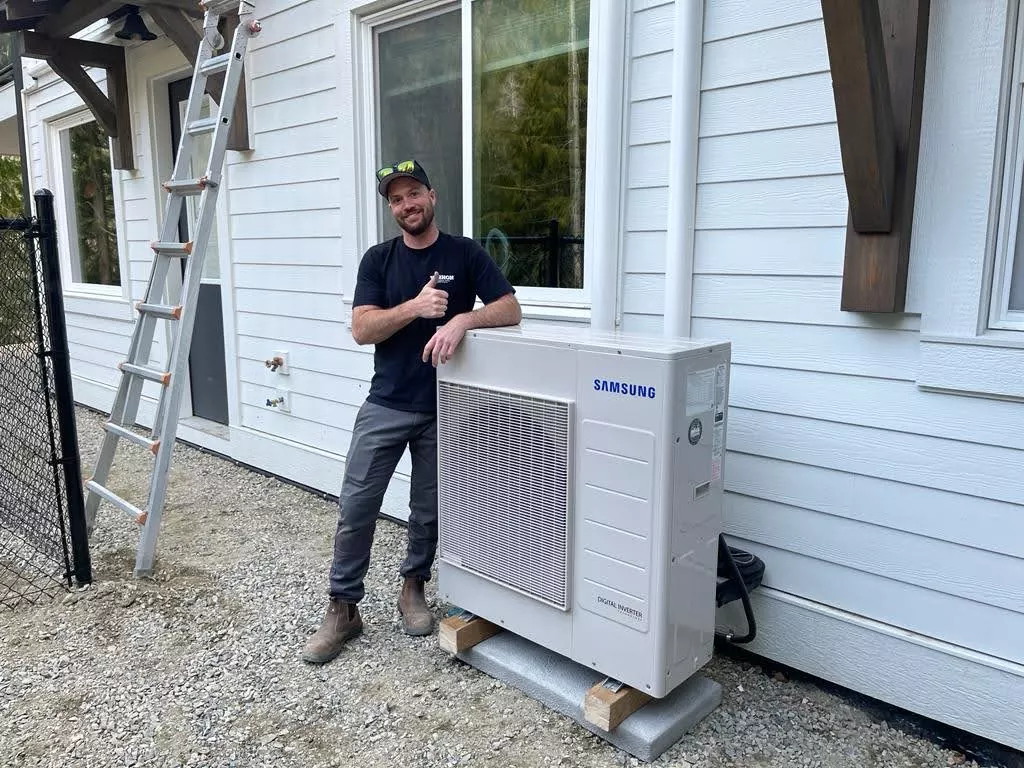
The heat pump vs. furnace debate is a difficult decision to make, but hopefully, you now know some of the pros and cons of each system.
But, of course, the biggest factor in your decision-making will be the region you live in.
A gas furnace is the best bet if you have cold, snowy winters.
On the other hand, consider a heat pump if you have a mild climate like California and Florida.
For more information on related topics, check out the rest of the Phyxter Blog.
Phyxter Home Services is your first choice as a local and independent heat pump or furnace specialist if you are looking for heating support.
We can guide you through the buying process for a heat pump or a furnace that’s perfectly sized and installed to meet your home’s needs.
If you live in the Okanagan region, call us today to discuss what heating system best suits your needs and budget.
Want to learn more about your home’s HVAC system? Feel free to check out the rest of our HVAC articles!
Related Reading: What is a Hybrid Water Heater?

